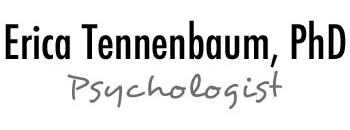Specialties
Reproductive Health
My interest and focus on reproductive health began during my master’s degree research at Fordham University. My doctoral dissertation examined pregnancy loss, and in particular the psychological effects of multiple miscarriages. I continue to have a strong interest in this area and have translated that to my current clinical work and research projects.
In my private practice I see individuals who struggle with a range of reproductive health issues, including: struggling to conceive, pregnancy loss, multiple miscarriages, receiving fertility treatment, need for a gestational carrier or surrogate, multifetal pregnancy reduction, baby blues, and post-partum, among other areas. Through my therapeutic work and research I understand that experiencing infertility and/ or pregnancy loss is a life crisis and can be extremely isolating.
Reproductive health problems often make women and men feel helpless and out of control. It can be overwhelming to navigate the different options in reproductive medicine or to explore adoption. Many of the couples I work with often refer to the process as an “emotional roller coaster” and have a wide range of emotions relating to their experience. Difficulties in pregnancy, pregnancy loss, infertility and post-partum can be life changing and greatly impact relationships. Seeking therapy to overcome these very personal challenges is useful.
Dialectical Behavioral Therapy (DBT) Specialty
During my clinical internship at New York Presbyterian Hospital, Columbia University Medical Center, I was trained in Dialectal Behavioral Therapy (DBT). Then I focused my post- doctorate hours in a DBT private practice, joining a consultation team of DBT experts. I lead ‘DBT skills groups’ and had individual DBT supervision. Since then, I have seen numerous DBT clients in my private practice and helped many of them build a ‘life worth living’ through skills group and intense individual treatment. Clients who find DBT helpful often note how they never realized how powerful accepting reality is and that they are thankful to have appropriate skills to help them cope with their painful emotions and difficult relationships. I currently run a DBT skills group and see clients individually for DBT informed treatment.
 Erica A Tennenbaum, PhD 212-496-2328 · info@drericatennenbaum.com · 156 West 86th Street, Suite 1B New York, NY 10024
Erica A Tennenbaum, PhD 212-496-2328 · info@drericatennenbaum.com · 156 West 86th Street, Suite 1B New York, NY 10024